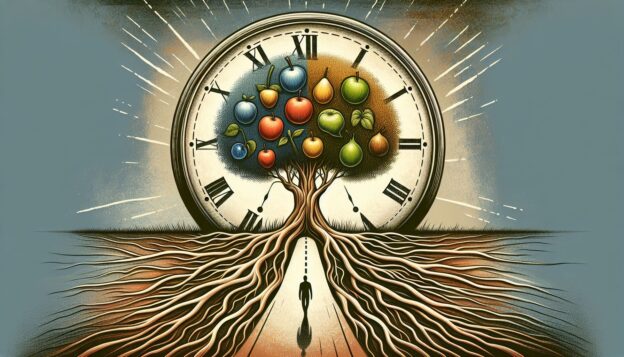In an age where the sands of culture shift beneath our feet with each passing trend and tweet, the bedrock of conservative values stands uneroded by the tumultuous waves of modernity. At the very heart of this stronghold lies a principle so fundamental, yet so profoundly disregarded in our current discourse, that its revival is nothing short of imperative. We speak of personal responsibility—a value not only central to conservative thought but one that has scaffolded the character of great men throughout history.
When reflecting on the fabric of our nation and the values that have been woven into its flag, we look back to the era of the Founding Fathers. These were titans of thought and virtue who understood that a society’s success hinged upon the personal responsibility of its citizens. Might we not take a page out of the lives of Washington and Jefferson? Their resolve and accountability were the loom on which our Constitution was crafted, their honor and integrity the ink with which our Declaration of Independence was penned.
Expanding upon this heritage, one cannot ignore the indomitable spirit of President Theodore Roosevelt, a paragon of masculinity and moral fortitude. At the dawning of what would become the progressive era, Roosevelt boldly championed the strenuous life—an existence marked by hard work, self-reliance, and a refusal to be a passive victim of circumstance. It is this very ethos of personal responsibility that has birthed leaders and innovators that have propelled our nation forward.
Fast forward to today’s political landscape, rife with issues from immigration and healthcare to the stifling quagmire of cancel culture. It’s clear that the widespread relinquishing of personal responsibility has not only corrupted individual character but has cascaded into a governance crisis. Politicians and activists champion policies that absolve individuals from the consequences of their choices, eroding the self-reliant, pioneering spirit that once defined the American ethos.
The essence of personal responsibility is diametrically opposed to the welfare state mentality which has saturated much of our public policy and political rhetoric. It is the idea that one’s life is the sum of their choices and that true dignity is rooted in self-sufficiency and personal development. When individuals surrender their autonomy for the sake of government promises and handouts, they barter away the very freedom their forebears fought and died to protect.
Conservatism understands that a strong and healthy society is constructed on the foundation of morally robust individuals who seize their destiny with both hands. This means standing against the tide of entitlement that threatens to wash away the diligence and moral fiber that makes true leadership possible. It means fostering a culture that values hard work over handouts, achieving success over scripting victimhood narratives, and honoring commitments over seeking continuous bailouts.
The consequences of shedding personal responsibility are stark. A culture that encourages blame-shifting rather than problem-solving breeds a generation of perpetual adolescents, unwilling to address the challenges that confront them. In contrast, embracing personal responsibility generates a populace capable of leadership, self-governance, and innovation that can weather the storms of economic recessions, social upheaval, and political upheaval.
When we consider the state of our educational institutions, the urgency of imparting the principle of personal responsibility cannot be overstated. The rise of “safe spaces” and the rejection of free speech are antithetical to the rigorous exchange of ideas on which higher learning—and indeed democracy itself—depends. Higher education must challenge young minds, not coddle them, and prepare them for a realm where their worth is defined by their contributions, not their complaints.
In this vein, the church must also rise to its historical role as a moral compass and nurturer of character. Christian conservatism has long understood that the health of society is a reflection of the spiritual health of its individuals. As such, Christians are called to exemplify and advocate for lives characterized by accountability before God and man alike, modeling the transformation that personal responsibility can effect on a soul, a community, and a nation.
The personal responsibility ethos empowers individuals, drawing out the vast reserves of potential that lie dormant in the absence of necessity and challenge. It breeds leaders, innovators, and champions. The conservative movement, therefore, is not merely a nostalgic reminiscence of bygone days but a clarion call to awaken the dormant giant of personal agency, industry, and honor.
As we navigate the 21st century with its unique set of trials and travails, it is time to rekindle the flame of personal responsibility—a trait that has guided the steps of history’s greatest men and women, from the marbled halls of ancient republics to the sprawling frontiers of the modern world. Let us, therefore, embrace this mantle, and in doing so, craft a future worthy of our past, and a legacy radiant with the integrity of our choices.
This is the draft board upon which a stable future can be structured, and we, as conservatives, must hold the line, standing firm against the relentless push for a society that undermines the very principles that empower man’s ascent. Responsibility, integrity, choice—these are the watchwords of our movement, the very chords that, when struck, reverberate with the sound of freedom’s song. Let us sing it loudly and live it unabashedly, that we may once again affirm the truths we hold self-evident and secure the blessings of liberty to ourselves and our posterity.
